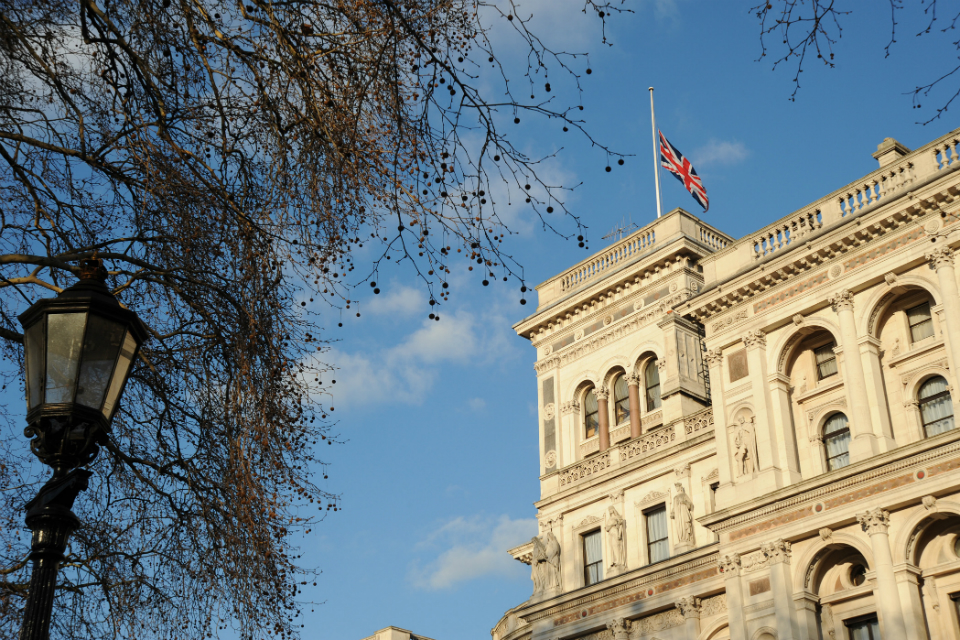'We must ensure accountability for those responsible for any chemical weapons use in Syria'
Intervention by Ambassador Lyall Grant of the UK Mission to the UN, to the General Assembly meeting on chemical weapon use in Syria

Mr President
I take this opportunity to congratulate President John Ashe on his assumption of the Presidency of the 68th Session of the General Assembly and look forward to working with him. I thank the Secretary-General for his briefing today. I should like to pay tribute to Mr Sellstrom and the members of his team. The strong and principled actions of the Secretary-General following the 21 August attack, in the face of Syrian regime resistance, secured access for the UN Mission to relevant sites. The dedicated work of Mr Sellstrom and his team, in dangerous conditions, has enabled the facts of this war crime to be established.
These facts confront us with a horrific reality: that chemical weapons were used for the first time this century and on a large scale with great loss of life, including of women and children.
In keeping with its mandate the UN Investigation Mission did not seek to determine culpability. But the findings of the Report, and the oral briefing to the Security Council yesterday present a clear picture. I draw your attention to five points in particular:
- The large-scale use of chemical weapons – a scale unprecedented since Saddam Hussain’s attack in Halabja in 1988. Just the rockets examined by the investigation team – a small percentage of the total - had a payload of sarin 35 times in excess of the sarin attack in the Tokyo subway of 1995.
- The analysis of samples collected by the UN Mission indicated the presence of chemical stabilizers suggesting a sophisticated production process. Mr Sellstrom confirmed that the chemicals were of a higher quality than held in Saddam Hussein’s arsenal. These samples were of the type known to be in the Syrian government stockpile.
- The weapons were industrially made and the fuses were of an advanced quality enabling the sarin to be released in the air.
- The sophistication of the munitions carrying the sarin makes it clear that these were professionally made and not improvised munitions.
- The trajectories of the rockets used, as set out in the report, show that they were fired from government held territory.
Mr President,
In the face of this evidence from the UN Mission, it is abundantly clear that the Syrian regime is the only party that could have been responsible for using chemical weapons on 21 August. To believe otherwise in this in the face of all available evidence, including the UN’s comprehensive and conclusive report, despite the bluster from the Representative of the Syrian Arab Republic, there is not a shred of evidence that points in any other direction.
Mr President,
The international community must respond decisively and effectively to the proven use of chemical weapons in Syria. The attack of 21 August is a direct challenge to all norms of international behaviour. It is a clear war crime. It is a deliberate and cynical violation of international law that has inflicted untold human suffering. Like the Secretary-General, we utterly condemn it.
We must ensure accountability for those responsible for any chemical weapons use in Syria, as well as for those responsible for the many horrific war crimes and abuses being carried out there.
And we must use all our influence, and the authority of the United Nations, to prevent any further use in Syria or elsewhere.
That is why the United Kingdom welcomes the Framework for elimination of Syrian chemical weapons agreed between the US and Russia in Geneva on 14 September. Our collective priority now must be to see this framework rapidly implemented, so that its ambitious timeline for the total destruction of the Syrian regime’s chemical weapons stock can be met.
That will require in the first instance a decision of the OPCW Executive Council. And then the Security Council should adopt a resolution reinforcing this decision and containing steps to ensure effective verification and implementation under accelerated timescales. The resolution will need to create legally binding obligations on the Syrian regime to give up its chemical weapons capability within an agreed timeframe and to credibly, reliably and promptly place them under international control for destruction.
Mr President
Terrible though the attacks of 21 August are, we must not forget the wider context in which they took place: a protracted conflict that has already cost the lives of well over 100,000 people and has resulted in over two million refugees and over four million internally displaced. A conflict in which war crimes have been carried out with both conventional and chemical weapons. This tragedy will continue until there is a political settlement reflecting the will of the Syrian people. The outrage we feel at the attacks of 21 August should be channelled into redoubling our efforts to secure such a settlement. The communiqué agreed in Geneva in 2012 provides a basis for a political settlement through the formation of a transitional government with full executive powers. We must all use our influence to secure rapid progress on the political track, including through convening as soon as possible a second Geneva Conference.